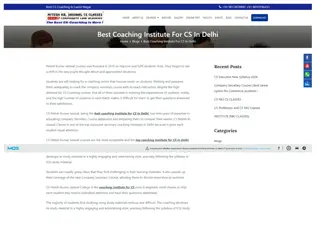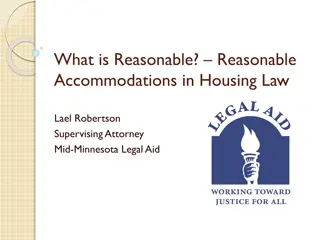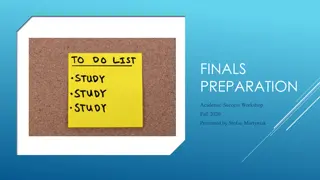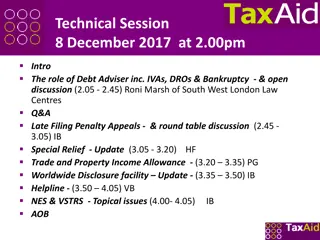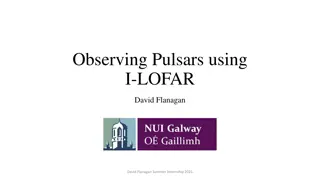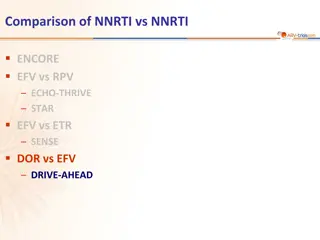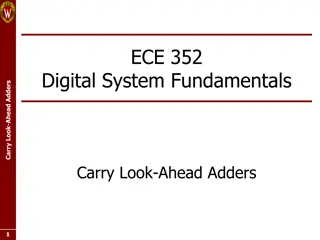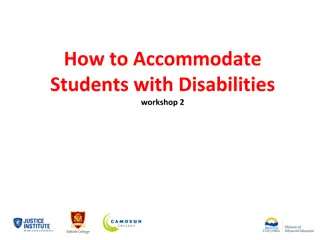
Moving Towards Specific Accommodations for Student Success on Practice Placement
"Explore the shift from generic reasonable accommodations to tailored, student-specific support mechanisms on practice placements. Practical examples and case scenarios shed light on creating individualized accommodations for student teachers like Kate. Learn how to enhance student success through personalized strategies."
Download Presentation

Please find below an Image/Link to download the presentation.
The content on the website is provided AS IS for your information and personal use only. It may not be sold, licensed, or shared on other websites without obtaining consent from the author. If you encounter any issues during the download, it is possible that the publisher has removed the file from their server.
You are allowed to download the files provided on this website for personal or commercial use, subject to the condition that they are used lawfully. All files are the property of their respective owners.
The content on the website is provided AS IS for your information and personal use only. It may not be sold, licensed, or shared on other websites without obtaining consent from the author.
E N D
Presentation Transcript
1 MOVING FROM GENERIC REASONABLE ACCOMMODATIONS TO INDIVIDUALISED, SPECIFIC ACCOMMODATIONS THAT SUPPORT STUDENTS SUCCESS ON PRACTICE PLACEMENT AHEAD Conference 19thMarch 2025 Julie Flanagan Senior Occupational Therapist/Clinical Practice Tutor, National Rehabilitation Hospital
2 PLAN Introduction Generic reasonable accommodations Examples of specific accommodations Small group work with case scenarios Discussion
3 GENERIC ACCOMMODATIONS Allow and provide time and space for student to take rest breaks Flexibility on placement deadlines as appropriate Avoid or reduce manual handling tasks Allow extra time for reading Moving from generic reasonable accommodations to individualised, specific accommodations that support students success on practice placement Provide regular feedback to student Allow student to use assistive technology
4 SPECIFIC ACCOMMODATIONS: READING Allow extra time for reading: - John will be provided with handouts in advance of tutorials/inservices, where possible. - Before Goal-setting meetings, John will spend time reading through the team s goals, so that he is not required to read them quickly in the meeting. - John will take extra time to read referrals, reports and patient notes. - If John requires a quiet space for reading, he can use the small breakout room.
5 SPECIFIC ACCOMMODATIONS: REST BREAKS Allow and provide time and space for rest breaks: - Mary will ensure that she takes all her scheduled breaks. She should avoid scheduling activities during her normal break times, even if others are doing this. If she misses a break, she should arrange to take it at a different time. - Mary will not do any work on her breaks (e.g. checking emails, talking to others about work). - Mary will minimize using her mobile during breaks, to provide a sensory break. - Mary will go to a quiet place for her breaks (list of suggested quiet places provided). - Mary will advise her Educator if she needs any additional basis, not indicated at present.
CASE SCENARIO: STUDENT TEACHER Kate is training to be a primary school teacher, and is in her final year. She has an 8 week placement at a busy national school in the city centre. She will be working with 2nd class. There are 28 children in the class, many of whom have additional needs. There is one class teacher and 2 full-time ANA s in the class. Kate has disclosed that she is dyslexic and has particular issues with spelling. The accommodations are: - Use of assistive technology for writing and spelling. - Additional time to prepare lesson plans. Can you write more specific accommodations for Kate? 6
CASE SCENARIO 2: PHYSIO STUDENT James is a physio student on a 2nd year placement, in a busy acute hospital, for 6 weeks. He has a Reasonable Accommodation plan which includes the following accommodations: - James should have access to a quiet space to complete his work, where possible. - Provide James with regular/daily feedback on progress on placement. James does not wish to disclose his disability. How can you make the reasonable accommodation more specific to this setting? 7

